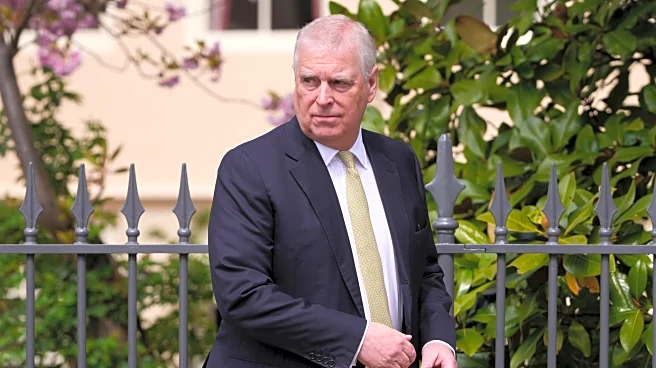What's Happening?
Shari Redstone, through her holding company National Amusements, is facing legal challenges following the merger of Paramount Global with Skydance Media. A class action lawsuit has been filed by billionaire money manager Mario Gabelli's Value 25 Fund and its affiliates, alleging that National Amusements received unfair payouts compared to other investors. The lawsuit, filed in Delaware Chancery Court, claims that the merger enriched Shari Redstone at the expense of minority investors. The merger, completed on August 7, aims to create a next-generation media and technology leader. However, concerns have been raised about the transparency of the deal, with GAMCO seeking access to Paramount's books and records to assess the fairness of the transaction.
Why It's Important?
The lawsuit highlights significant concerns about corporate governance and shareholder rights in major mergers and acquisitions. If the allegations are proven, it could lead to increased scrutiny of how controlling shareholders manage payouts in such deals. This case could set a precedent for future mergers, potentially affecting how minority shareholders are treated and the level of transparency required in corporate transactions. The outcome may influence investor confidence in media and technology mergers, impacting stock prices and investment strategies in these sectors.
What's Next?
The legal proceedings will likely involve detailed examination of the merger terms and payouts. Stakeholders, including minority investors and corporate governance advocates, will be closely monitoring the case. Depending on the court's decision, there could be implications for the merger's structure and future operations of the combined entity. Additionally, the case may prompt other investors to file similar lawsuits, challenging the fairness of the merger and seeking better transparency and equitable treatment.
Beyond the Headlines
This lawsuit underscores the ethical considerations in corporate mergers, particularly regarding the treatment of minority shareholders. It raises questions about the balance of power between controlling shareholders and other investors, and the ethical obligations of companies to ensure fair treatment for all parties involved. The case may also influence future regulatory policies aimed at protecting minority shareholders in large corporate transactions.












